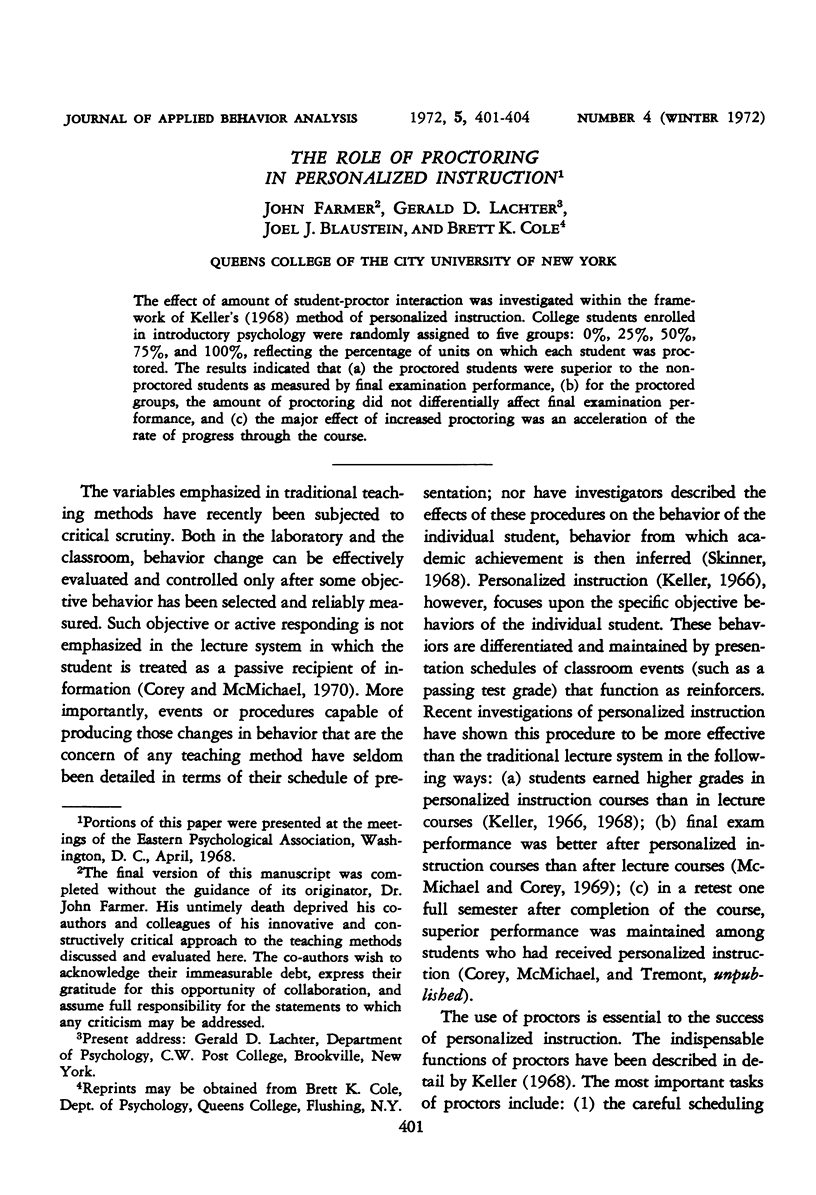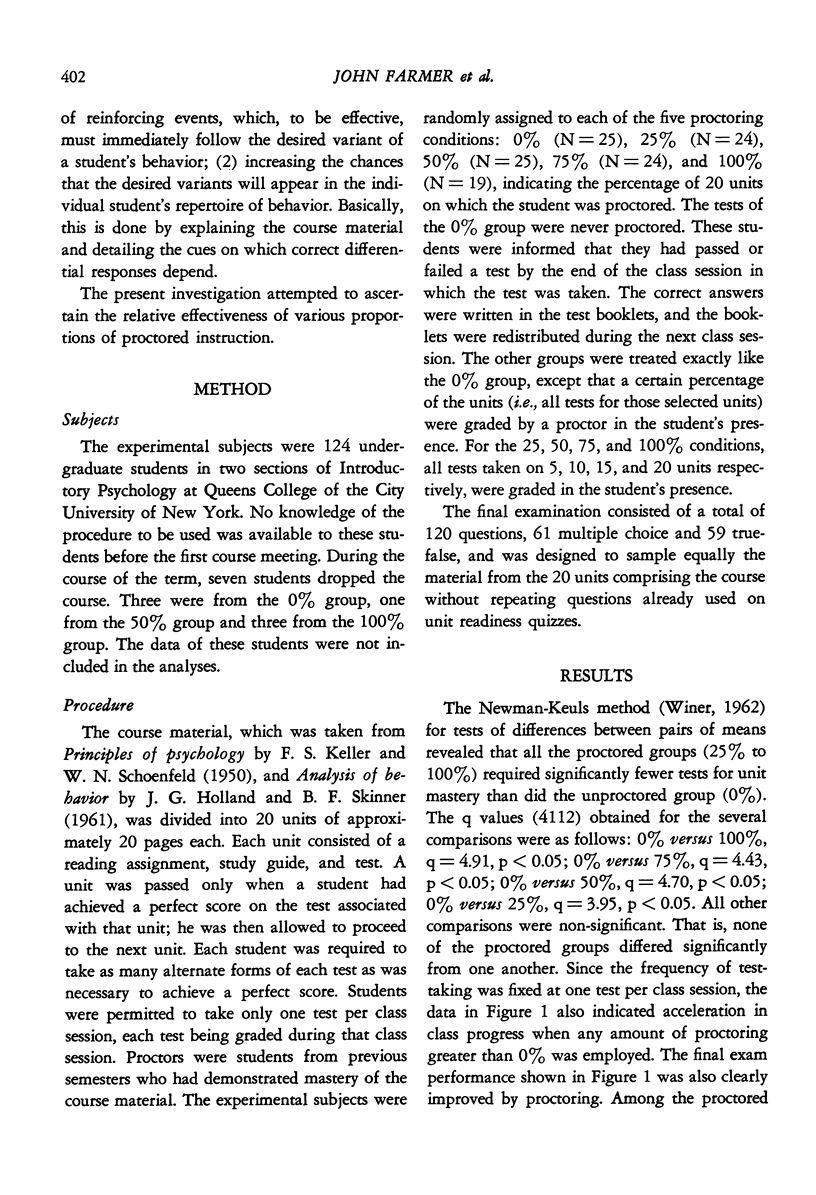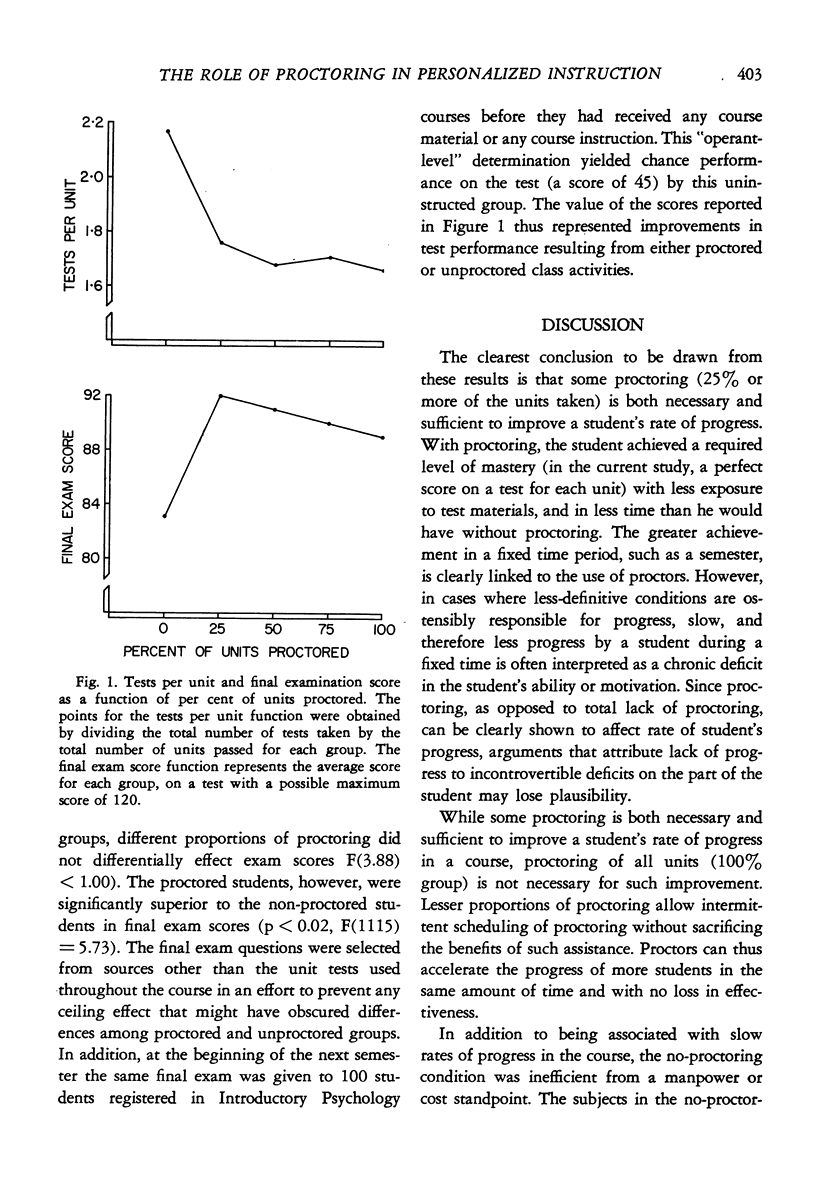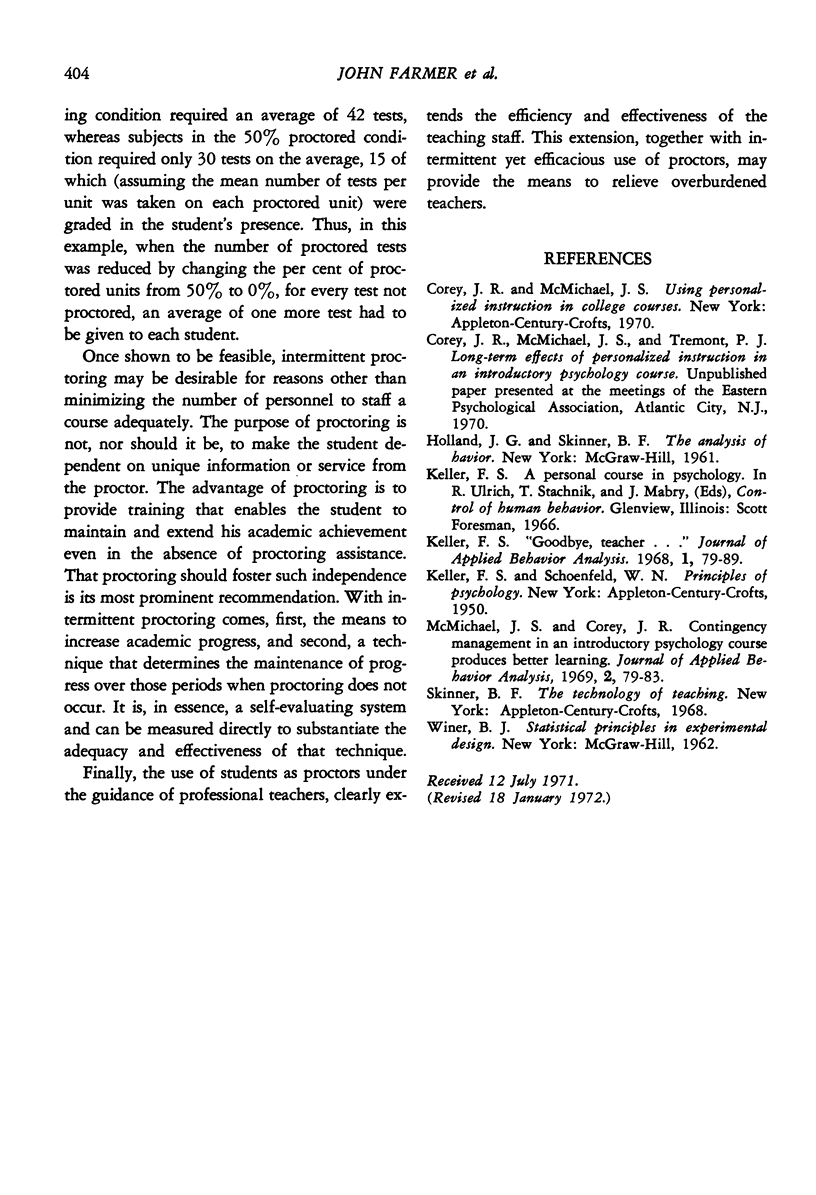Abstract
The effect of amount of student-proctor interaction was investigated within the framework of Keller's (1968) method of personalized instruction. College students enrolled in introductory psychology were randomly assigned to five groups: 0%, 25%, 50%, 75%, and 100%, reflecting the percentage of units on which each student was proctored. The results indicated that (a) the proctored students were superior to the non-proctored students as measured by final examination performance, (b) for the proctored groups, the amount of proctoring did not differentially affect final examination performance, and (c) the major effect of increased proctoring was an acceleration of the rate of progress through the course.
Full text
PDF



Selected References
These references are in PubMed. This may not be the complete list of references from this article.
- Keller F. S. "Good-bye, teacher...". J Appl Behav Anal. 1968 Spring;1(1):79–89. doi: 10.1901/jaba.1968.1-79. [DOI] [PMC free article] [PubMed] [Google Scholar]
- McMichael J. S., Corey J. R. Contingency management in an introductory psychology course produces better learning. J Appl Behav Anal. 1969 Summer;2(2):79–83. doi: 10.1901/jaba.1969.2-79. [DOI] [PMC free article] [PubMed] [Google Scholar]


